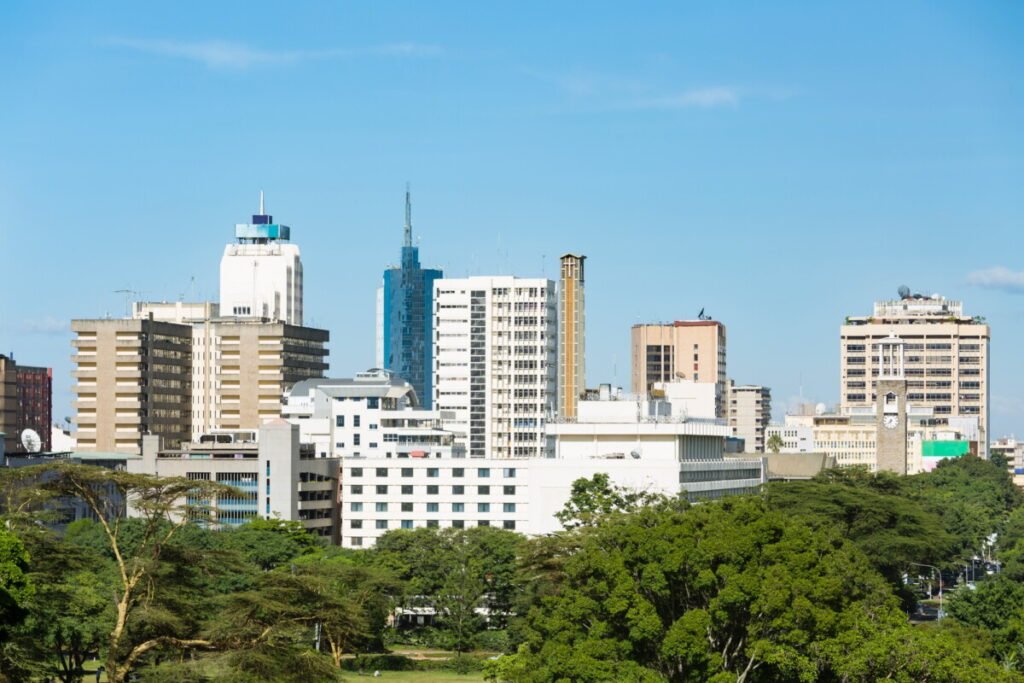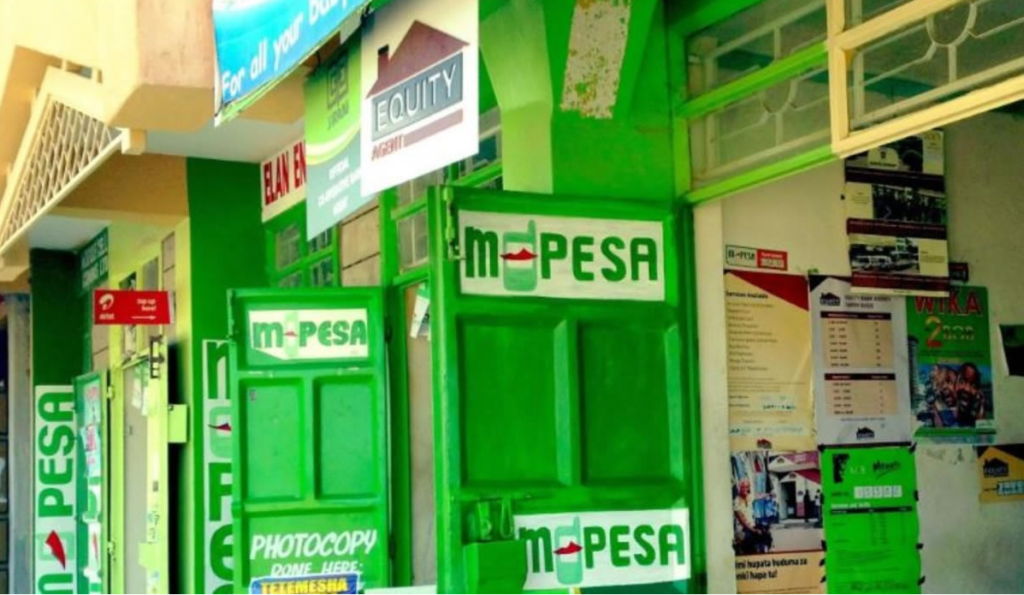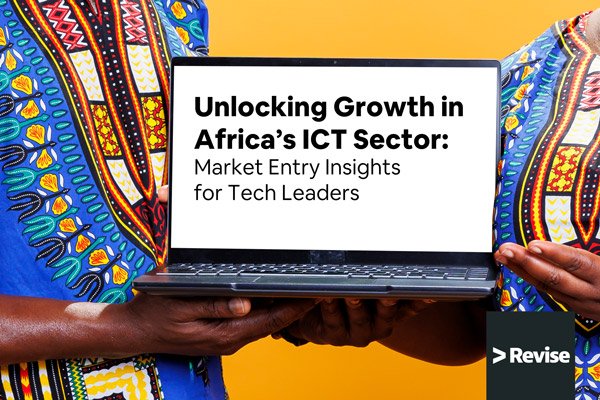Africa’s digital landscape is evolving at an unprecedented pace, earning the region the moniker of “Silicon Savannah.” The continent’s rapid adoption of mobile technology, fintech solutions, and digital services has created fertile ground for innovative ICT ventures. With a projected digital economy growth rate surpassing most regions globally, Africa is positioned as a key player in the global tech revolution. Companies seeking to enter this thriving market must be prepared to navigate a dynamic ecosystem of opportunity and complexity. Revise Africa is here to provide the market entry expertise you need to succeed.
Why Africa Is a Prime Destination for ICT and Digital Innovation?
Africa’s ICT sector is on a trajectory of unprecedented growth, driven by key demographic and market trends. The sector’s expansion is fueled by the following factors:
Youthful Population: Over 60% of Africa’s population is under 25 years old, forming a tech-savvy consumer base eager to adopt digital solutions. This young demographic not only drives demand but also serves as a source of digital innovation and entrepreneurship. Young innovators are launching local apps, fintech solutions, and platforms that address everyday challenges.
High Mobile Penetration: Mobile phone subscriptions in Africa exceed 500 million, with mobile internet users rapidly expanding. In countries such as Kenya, Nigeria, and South Africa, mobile-first technology ecosystems are thriving, enabling the widespread adoption of fintech, e-commerce, and digital services. Smartphone adoption continues to rise as data plans become more affordable.
Digital Transformation Investments: Governments and international partners are prioritizing digital infrastructure, including fiber optics, data centers, and regulatory reforms to create supportive environments for tech-driven growth. These investments open new avenues for public-private partnerships, digital banking, e-government services, and innovative digital initiatives.
Booming Startup Ecosystem: Major tech hubs in cities such as Nairobi, Lagos, Cape Town, and Kigali attract billions in tech investments. These cities host accelerator programs, tech incubators, and innovation hubs that foster collaboration and serve as gateways for market expansion. Partnerships between global companies and local talent create scalable business models that can succeed regionally.

Top Growth Areas for ICT Business Success in Africa
1. Fintech Solutions
Empowering financial inclusion through digital platforms.
Africa leads the world in mobile money adoption, with services like M-Pesa revolutionizing financial transactions. Yet, millions remain unbanked, creating vast opportunities for fintech innovation.
Market Need: Financial inclusion for underserved populations, particularly in rural areas.
Business Opportunity: Introduce digital wallets, peer-to-peer lending, and blockchain-based remittance solutions to enhance accessibility and affordability.
2. E-commerce and Digital Retail
Transforming consumer access to goods and services.
Africa’s e-commerce sector is experiencing exponential growth, driven by improved internet connectivity and a rising middle class.
Market Need: Reliable online marketplaces and digital payment solutions.
Business Opportunity: Launch platforms that facilitate secure transactions, logistics solutions for last-mile delivery, and AI-driven inventory management systems.
3. EdTech and Digital Learning
Bridging the education gap with online learning platforms.
Access to quality education remains a challenge in many African regions. Digital learning platforms can help bridge this gap.
Market Need: Affordable and accessible educational content for learners at all levels.
Business Opportunity: Develop interactive e-learning tools, virtual classrooms, and skill-development apps tailored to local needs.
4. HealthTech and Telemedicine
Revolutionizing healthcare access with digital innovations.
Africa’s healthcare system faces significant challenges, including limited access to medical professionals and facilities. HealthTech solutions can address these gaps.
Market Need: Remote diagnostic services, electronic health records, and teleconsultations.
Business Opportunity: Build AI-powered diagnostic tools, telemedicine platforms, and mobile health apps that improve healthcare outcomes.
5. Smart Cities and IoT Solutions
Enhancing urban living through smart infrastructure.
With rapid urbanization, African cities are seeking innovative solutions to manage congestion, waste, and energy use.
Market Need: Data-driven urban planning, smart mobility, and energy management systems.
Business Opportunity: Provide IoT-enabled devices for traffic management, smart meters, and waste management tracking systems.

Revise Africa’s Market Entry Services for ICT and Digital Innovation Companies
At Revise Africa, we offer tailored market entry services to help ICT companies navigate complex markets and capitalize on growth opportunities while maintaining efficiency and speed to market.
1. Regulatory Navigation and Compliance
Our team guides you through data privacy laws, telecommunications licensing, and fintech regulations, ensuring your business remains compliant and avoids costly legal hurdles. This support minimizes delays, accelerating market readiness and avoiding unexpected expenses.
2. Company Incorporation and Operational Setup
We handle everything from business registration and tax structuring to securing office space, enabling you to focus on your core operations. Our streamlined processes help reduce overhead costs and shorten the timeline to operational launch.
3. Strategic Partnership Development
We connect you with key stakeholders, including government agencies, venture capital firms, incubators, and tech hubs across Africa’s innovation ecosystems. These partnerships provide a competitive edge and enable rapid market entry.
4. Talent Acquisition and Workforce Solutions
We recruit top-tier professionals, from software engineers and data scientists to product managers and support teams. Our focus on cost-effective hiring and retention strategies ensures you have the right talent to scale effectively.
5. Market Insights and Localization Support
Gain access to in-depth market intelligence, competitor analysis, and consumer behavior data. We tailor your products and marketing strategies to local preferences, ensuring strong user adoption and customer loyalty.
By providing these comprehensive services, Revise Africa empowers ICT businesses to establish a successful and sustainable presence in Africa.
Why choose Revise
3 Reasons That Makes Revise Different.
Discover What Sets Us Apart for Seamless Market Entry Success
-
Tailored Local Expertise
Our deep knowledge of East Africa regulatory landscape, business networks, and cultural nuances ensures a smooth and compliant market entry. We help you navigate tax policies, incentives, and partnerships to position your business for success
-
End-to-End Market Entry Solutions
From company incorporation and legal compliance to recruitment, co-working spaces, and business development, we provide comprehensive services to get you up and running quickly and cost-effectively.
-
Access to Strategic Partnerships
Revise offers exclusive connections to local stakeholders, from industry leaders to innovation hubs, enabling you to tap into high-value ecosystems in sectors like renewable energy, agribusiness, and ICT for rapid market growth.
What Are Country-Specific Market Trends in Africa’s ICT Sector?
The African ICT market presents unique trends and opportunities across various countries. Below is an overview of key market trends in leading African markets, each with specific growth drivers, regulatory landscapes, and innovation hubs.
The Silicon Savannah: Key Market Trends in Kenya
Thriving Mobile Ecosystem: Kenya remains a global leader in mobile money services, with platforms like M-Pesa continuing to drive financial inclusion and e-commerce growth.
Tech Hubs and Smart Cities: The country boasts over 50 active innovation hubs and initiatives such as Konza Technopolis, which is set to become a flagship smart city project.
Government Digital Strategy: Kenya’s Digital Economy Blueprint emphasizes digital skills, infrastructure, and services.
Service Expansion: The ICT sector contributed over 8% of GDP in 2024, highlighting its central role in economic growth.
Growth Areas in Kenya
Fintech
Opportunities: Mobile-based financial solutions and SME lending platforms.
Trends: Integration of blockchain for secure transactions.
Agritech Solutions
Opportunities: Smart farming tools and market information apps.
Trends: Rise of AI-powered weather prediction systems.
Nigeria: A Rising Tech Giant
Key market trends in Nigeria include:
Massive Consumer Base: With a population exceeding 200 million, Nigeria’s digital market is booming.
Startup Success Stories: Lagos remains Africa’s leading hub for tech startups, securing $1.2 billion in funding in 2024.
Telecom Expansion: Nigeria has seen rapid 4G and 5G infrastructure development, with subscriber numbers surpassing 100 million.
Data Center Growth: The country has become a hotspot for cloud services and local data centers due to increasing demand for digital storage.
Growth Areas in Nigeria
E-commerce Platforms
Opportunities: Digital retail platforms targeting urban and semi-urban areas.
Trends: Growing adoption of “buy now, pay later” models.
EdTech Expansion
Opportunities: Virtual classrooms and online examination tools.
Trends: Increased government support for online learning initiatives.
South Africa: A Regional Powerhouse
Key Market Trends:
Sophisticated ICT Ecosystem: South Africa leads in advanced IT solutions and is a hub for BPO (Business Process Outsourcing).
Cybersecurity and Regulation: The country has implemented strict data protection regulations under POPIA (Protection of Personal Information Act).
Tech Investment: Johannesburg and Cape Town have emerged as top destinations for ICT investments.
Growth Areas in South Africa
HealthTech Innovation
Opportunities: Telemedicine platforms and electronic health records.
Trends: Increased adoption of AI-driven diagnostic solutions.
Smart City Solutions
Opportunities: IoT-enabled urban planning tools.
Trends: Deployment of smart traffic systems and public safety networks.
Ethiopia: A Growing Digital Frontier
Key Market Trends:
ICT Expansion: The government’s “Digital Ethiopia 2025” strategy aims to increase connectivity and ICT exports.
Monopoly Shift: The telecom industry’s liberalization has attracted international players like Safaricom.
Digital Infrastructure Investments: Massive investment in fiber optics and data centers is underway.
Growth Areas in Ethiopia
Telecom Services
Opportunities: Mobile financial services and 5G deployment.
Trends: Increased competition due to privatization.
E-Government Services
Opportunities: Development of digital ID systems and online public service platforms.
Trends: Greater demand for e-governance tools.
Senegal: A West African Digital Hub
Key Market Trends
Regional Connectivity: Senegal serves as a gateway for ICT services to francophone Africa.
Government Partnerships: Public-private partnerships have driven the growth of digital education and healthcare solutions.
Innovation Clusters: Dakar is home to a growing number of tech hubs and innovation centers.
Growth Areas in Senegal
Digital Education Platforms
Opportunities: Development of multilingual learning tools.
Trends: Increased collaboration with international EdTech providers.
E-Health Solutions
Opportunities: Teleconsultation services and mobile health applications.
Trends: Government initiatives promoting digital health inclusion.
Uganda: A Fast-Developing Digital Economy
Key Market Trends
Youth-Driven Innovation: Over 75% of Uganda’s population is under 30, fueling demand for digital jobs and services.
Mobile Penetration: With mobile broadband access surpassing 65%, digital content and mobile apps are on the rise.
Startup Ecosystem: Kampala’s tech hubs are fostering entrepreneurship, particularly in fintech and agritech.
Growth Areas in Uganda
AgriTech Innovations
Opportunities: Digital supply chain management systems.
Trends: Use of mobile apps to connect farmers to markets.
Digital Financial Services
Opportunities: Mobile loans and digital wallets.
Ghana: West Africa’s Digital Growth Hub
Key Market Trends in Ghana:
Expanding Tech Ecosystem: Ghana’s ICT sector has experienced consistent growth, with Accra emerging as a key tech hub.
Government ICT Policies: Initiatives such as the Ghana Digital Transformation Policy emphasize e-governance, digital skills training, and financial technology.
Innovation Hubs: Cities like Accra and Kumasi host multiple incubators and co-working spaces, fostering startup growth.
Growth Areas in Ghana
Fintech Growth
Opportunities: Expansion of mobile payment platforms and digital lending solutions.
Trends: Partnerships between telecom providers and fintech startups.
E-Government Services
Opportunities: Digital ID and online public service platforms.
Trends: Implementation of blockchain for secure transactions and public records.
Frequently Asked Questions about ICT Sector in Africa:
Cities like Nairobi, Lagos, Cape Town, and Kigali are major innovation hubs, hosting accelerators, incubators, and investment opportunities.
Fintech, HealthTech, EdTech, and E-commerce are rapidly expanding sectors driving innovation and user adoption.
Kenya, known as the "Silicon Savannah," is home to major universities that drive talent and innovation. For example, the University of Nairobi has over 84,000 students, Kenyatta University has approximately 70,000 students, and Moi University hosts more than 50,000 students, contributing to a skilled workforce for the ICT sector. Kenya’s investments in digital infrastructure, including fiber optic networks and smart city initiatives like Konza Technopolis, further strengthen its ICT leadership.
Kenya provides various incentives, including tax breaks for tech startups, funding from innovation hubs, and public-private partnership opportunities through government-backed programs
Konza Technopolis is a flagship smart city project aimed at fostering ICT innovation and attracting global tech companies, providing state-of-the-art facilities and R&D opportunities.
Clients who partner with Revise Africa experience faster market entry, increased user adoption, and significant operational savings. For example, we have helped fintech and EdTech businesses scale their user bases by up to 200% within a year
Success Stories
Revise clients have achieved remarkable milestones in Africa’s ICT sector:
Mobile Payments Innovator: A fintech startup partnered with us to expand across East Africa, growing its user base by 200% in one year.
E-learning Pioneer: An EdTech company launched its interactive learning platform in Nigeria, onboarding 50,000 users within the first six months.
HealthTech Leader: A telemedicine provider scaled its operations to three African countries, offering over 100,000 virtual consultations annually.
Get Your Free Market Entry Consultation Today
Africa’s ICT and digital innovation landscape is teeming with potential for forward-thinking companies. Whether you’re developing fintech solutions, launching an EdTech platform, or building IoT infrastructure, Revise Africa is your strategic partner for market entry success.
Contact us today to schedule your free consultation and receive a customized market entry quote.



